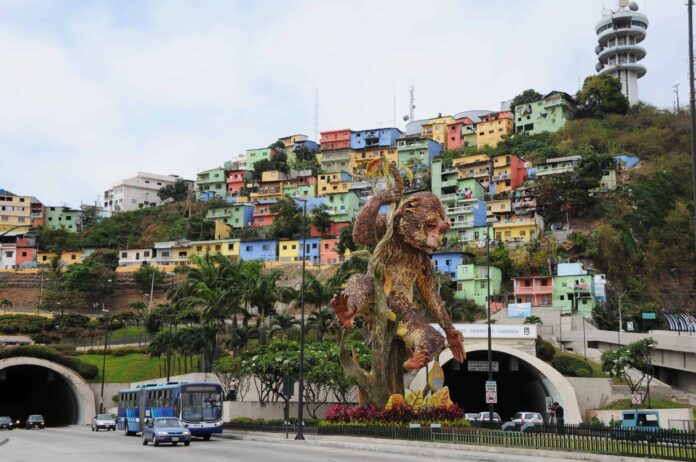I left Ecuador almost three years ago, and since then, I haven’t come back. Being so far away from your country changes your relationship with it. Even though I have kept in touch with my family and some high school friends, Ecuador now feels distant and a bit foreign, like I don’t belong there anymore.
I’ve never been a particularly patriotic person; ever since I learned that I could leave my country and study abroad, that was my dream. However, being an international student is never that simple. Nobody tells you about homesickness, loneliness and how your country of origin will become a great part of your identity in a new place.
Even though I feel like my life is now in Canada, moving here allowed me to truly appreciate what I had back home. Before, I had this Eurocentric view of my country, I saw it as an underdeveloped, third-world country, overcome by poverty and corruption. I didn’t see myself having a future there.
Having this pessimistic view of Ecuador made me forget about all the good things it had. Nonetheless, when I came to Canada, I realized home was more than what most of the world saw it for. Ecuador was not only corruption, drug trafficking or crime to me, Ecuador is and always has been, biodiversity, amazing cuisine and kind people.
When the negative news about the state of emergency started circulating and people were making quick judgments, I wanted to prove them wrong. I wanted people to understand that Ecuador had the potential to be successful and to be more than its colonial past and its current violent reality. I guess I had to be far away from my country to truly appreciate it. It’s funny how I never felt more Ecuadorian than when I left Ecuador and started living in another country.
Related: Explainer: What is going on in Ecuador?
When I moved to Canada, I became more proud to be Ecuadorian. It also felt like I had to, transitioning into adulthood fully on my own; it was the only thing that made sense to me about my identity. And it was also a reminder that I wasn’t alone.
When I started seeing the news about the difficult times Ecuador was going through – first with the growing violence in the jails and the political instability, then with all the insecurity, theft, drug gangs, kidnappings and murders – I had mixed feelings. I was worried about my family, but I was also worried about the future of my country. Despite not having plans of coming back permanently, I liked to think that was still a possibility.
I never really saw myself living the rest of my life in Ecuador, but that was my choice; now it doesn’t feel like a choice anymore, it’s a final sentence. My mom would tell me every time something awful happened that she was glad I wasn’t there and that it was good that I had left. Despite this being her way to make me feel better, or make herself feel better, it only made me feel guilty and powerless. I was glad that I wasn’t there, but at the same time, I was sad that I wasn’t.
I’m still not the most patriotic person out there, but watching the country that raised you fall to pieces is probably one of the worst feelings anyone can have. If I’m completely honest, and you probably noticed by now, I didn’t have much hope for my country. The blatant corruption and awful management made me believe we were a lost cause. However, I never really expected to feel this scared for being so close to a future I already predicted.
Nonetheless, despite all the adversities and complicated economic issues, including the state of war and the presence of terrorist groups, I realize that I still harbour some hope. I have hope that the beautiful country I have known all my life will overcome one of its toughest times in history. Furthermore, I have hope that the world will come to recognize Ecuador for its true worth, rather than focusing on the unfortunate circumstances it has been through.

